Expert predictions: Forecasting the third stage of the 2021 Hyundai Archery World Cup
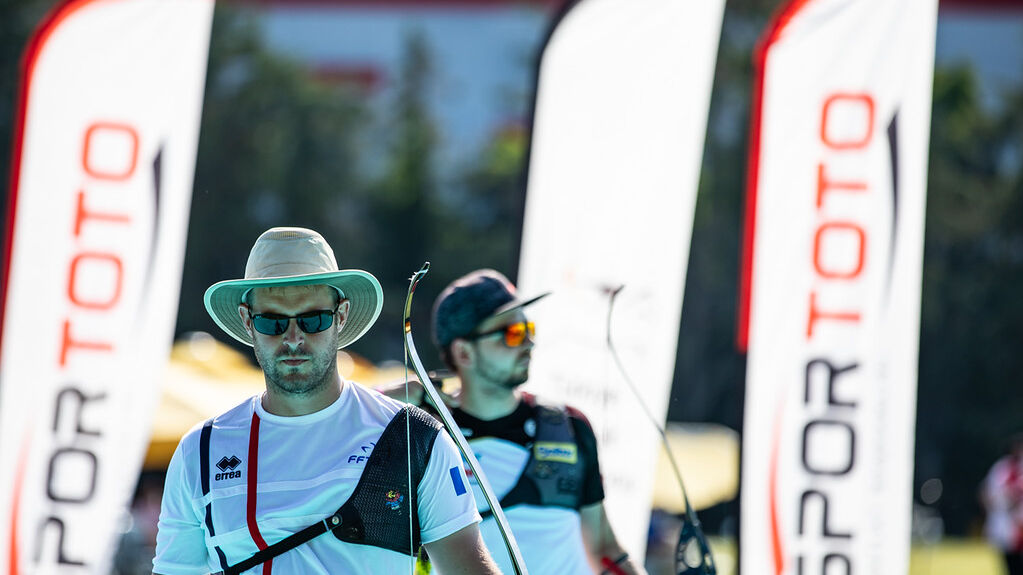
Time is running out.
Whether it’s the 2021 Hyundai Archery World Cup Final or the Tokyo 2020 Olympic Games, stage three of the international circuit in Paris represents the final chance for archers to qualify for two of the biggest events of the year. Will a new contender join the collection of archers who have already earned an automatic bid to the season-ending event in Yankton? Which teams will claim the remaining quota places to attend the Games in Japan? Who will use Paris to catapult themselves to further glory?
To make sense of it all, we’ve polled the following panel of experts for their predictions heading into this pivotal third and final stage of the international circuit.
- Dean Alberga, photographer
- Nicky Hunt, broadcast analyst
- John Stanley, journalist
- George Tekmitchov, podcaster
- Andrea Vasquez, journalist
- Chris Wells, journalist
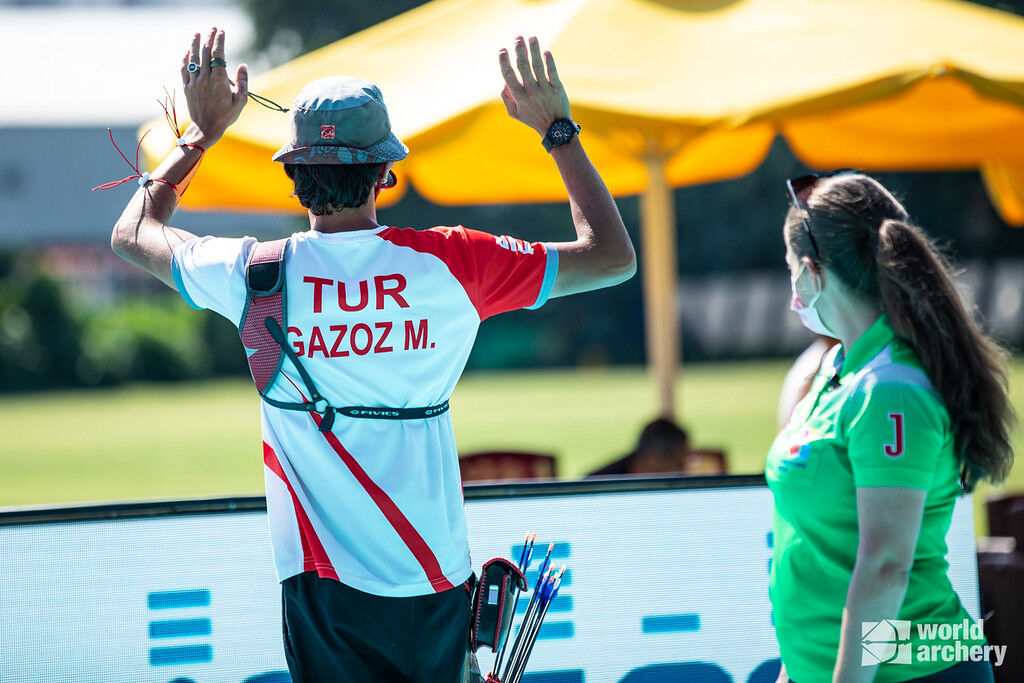
1. Who were you most pleased to see earn a quota place at the penultimate Olympic qualification tournament in Antalya?
George: I was really happy to see Turkey, a country that has done so much to help promote our sport over the years, get their place for the Games. I was also relieved to see France, the largest archery country by national competition participation, get its slots. Having the next host country of the Olympic Games fail to make it to the field in Tokyo would have been unbearable.
Nicky: Lisa Barbelin, the 21-year-old from France, showed pure determination and control to win the quota spot, quota tournament and European Championship title all in one week. This is an archer in fine form, and I’m excited to see her at the Olympic Games. If she can maintain that mental space, she is going to be dangerous!
John: Mete Gazoz has hit some astonishing heights over the past few years, but he didn’t manage to take a spot in either Minsk or Den Bosch in 2019. But he came through in a match against Russia’s Galsan Bazarzhapov, which would have tested literally any archer in the world. He’s had ups and downs but peaked at the right time and delivered the goods. He well deserves his spot at his second Games.
Chris: I’m a big Mete fan, too. He’s got a great personality and just comes across like such a genuinely nice kid. He also has the only physical attribute that I think really gives an advantage in recurve archery – long arms – and I really like his technique. It would have been disappointing not to have the world number two in Tokyo.
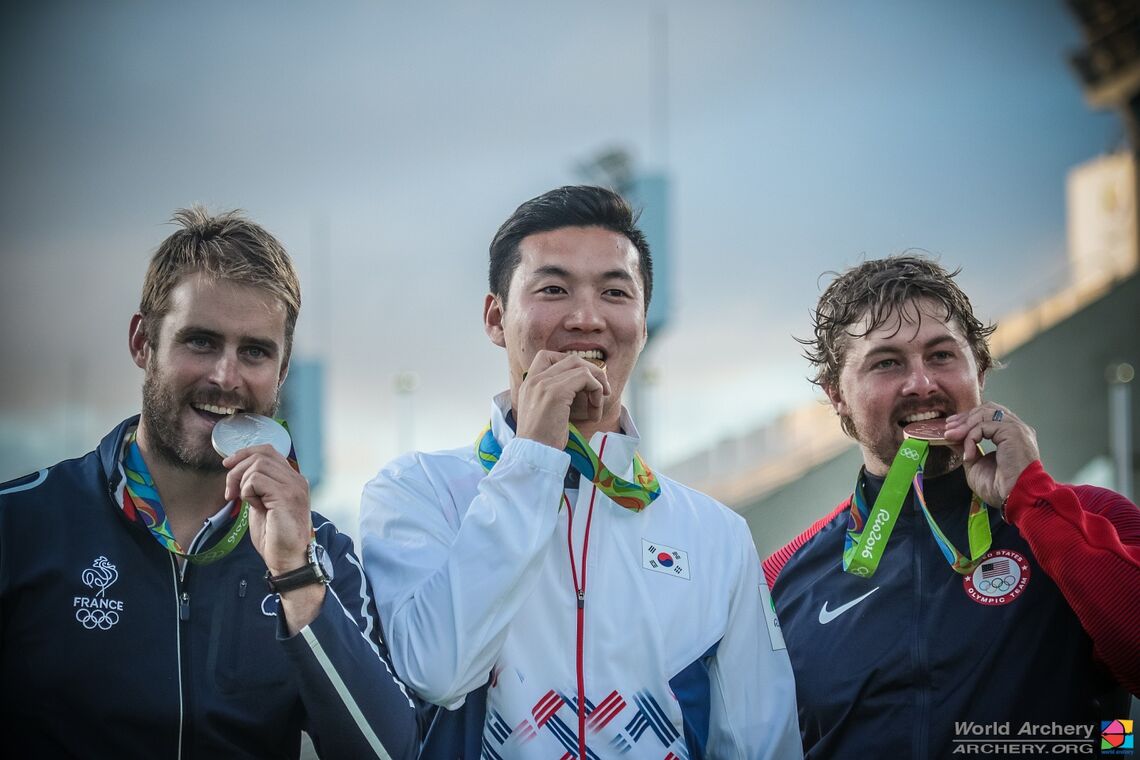
2. The 128 quota places awarded to archers are relatively few compared to other sports. Should there be more archers, or does the scarcity of spots available uphold the prestige of attending the Games?
John: I think 128 is the correct number of archers. It ensures a competition schedule where everyone, from all over the world, gets a match on the big stage and their chance to shine – a distinctive, vital and sometimes forgotten feature of the Olympics. There are several chances for most participants to qualify, so it’s not really a question of luck. And the Olympics is not the end-all, be-all for most accomplished archers.
Andrea: The Olympics are the pinnacle of sport. Having only 128 archers competing ensures each gets a well-deserved spotlight at the event. They own their place, they fight for it and deserve the Olympian accolade to mean something exclusive. There will always be devastation for those who don't make it, but that’s sport. Only the best attend.
George: Interesting question. Despite archery’s improved status after the London 2012 Olympic Games – going up a level in the funding hierarchy – we need to remember that the International Olympic Committee is always looking to trim sports back and potentially replace them with what they see as more telegenic or trendy activities. Of course, I would like to see more athletes have their shot at an Olympic medal, but I also understand the realities of the economics and logistics of our event as it stands now. We are especially fortunate to have the mixed team medals added to Tokyo.
Dean: I don’t think increasing the number of participants would take away any of the prestige of attending the Games. Earning a quota place is hard with only a limited amount of spots available; it doesn’t leave much room for error during a qualification year. A few more spots would be welcome.
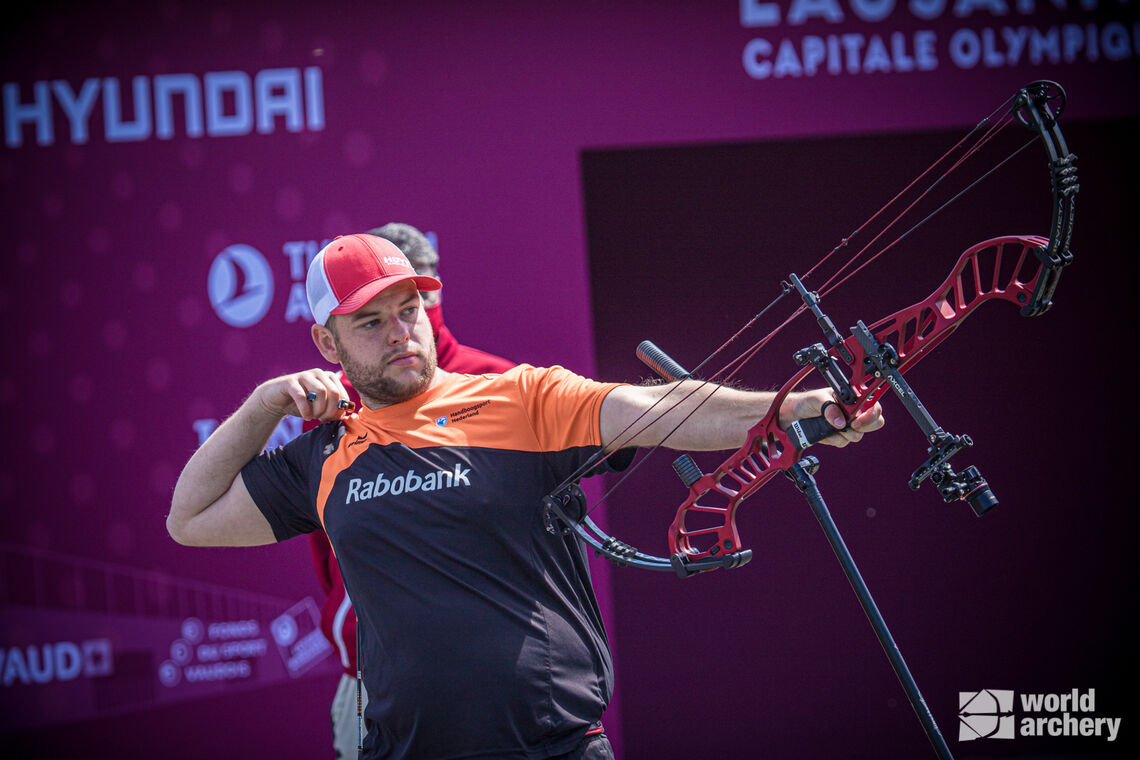
3. Compound archers have taken a backseat to the recurves in an Olympic year. Will the discipline ever make it to the Games?
George: It’s inevitable, as compound continues to take steps to achieve the requirements for Olympic inclusion. World Archery is increasing the universality with educational programs and seminars to increase the number of qualified compound coaches, the discipline is now in every continental Games, equipment makers are stepping up to support World Archery's efforts and, despite some setbacks from the pandemic, I believe the category is on track to make a bid for Games inclusion by the time of the Los Angeles Games in 2028. We really need more growth in Asia to help, but this is achievable. We need to remember, though, that compound should be in addition to recurve – not a replacement.
John: I think it is unlikely that compound archery will make it to the Games in its present target form; it’s just too similar to the recurve competition, and it is extremely difficult to increase athlete numbers under the current Olympic strategy. It isn’t impossible, but I think it is unlikely. I think the best chance for compound archery to appear is some kind of ‘urban field’ competition in the skate park, which would appeal to a different audience – if it could be made to work for television.
Nicky: World Archery has done so much to adapt the rules to make it different from the recurve format, which I think is good to give it a chance to get into the Olympic Games. It always feels like we are 10 years away from it getting in. The bow was born in the United States, and I am hopeful the Los Angeles Olympics could be the one. I would love to see it. The standard of compound archery and the professionalism in terms of how the archers train has grown so much over the past 10 to 20 years. I think it is time.
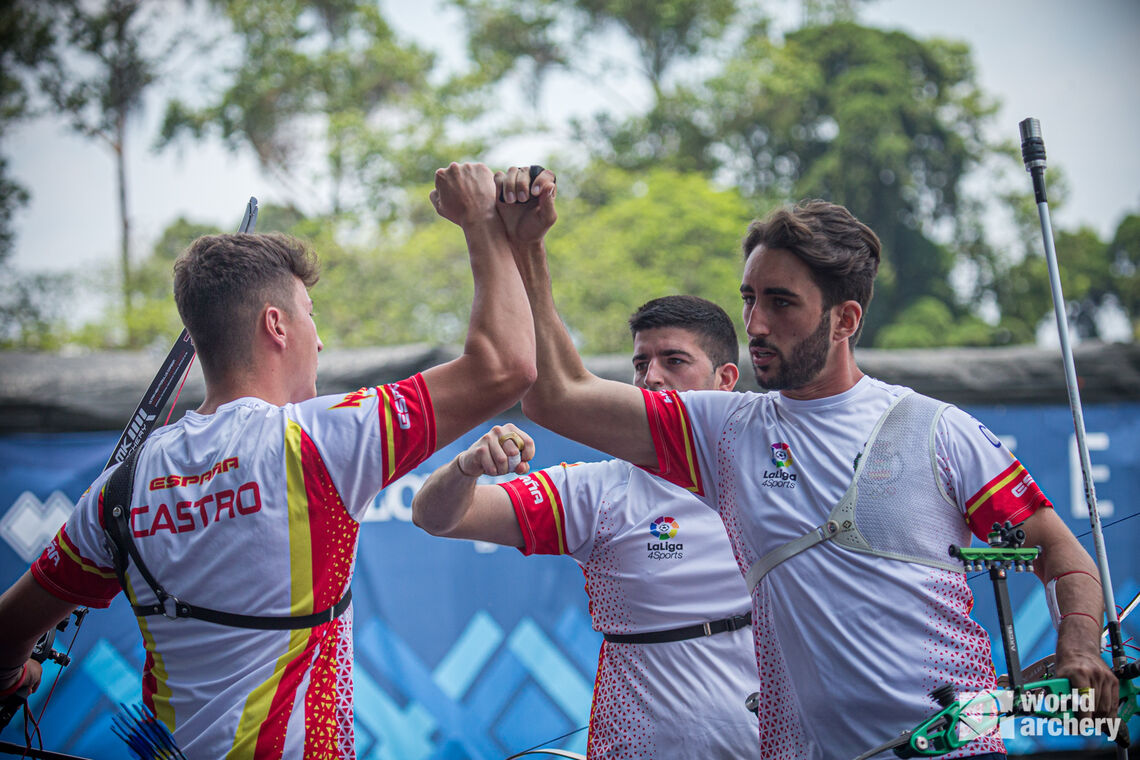
4. There are six team quota places – three men’s teams, three women’s teams – available in Paris. Which nations do you think will take them?
Andrea: I can see Spain taking places if it continues performing as it has through this year. I also think the Italian and German men’s teams can increase their single spots to full quota places, while India and Mexico push for theirs in the women’s event.
George: The Stade Charléty of Paris may prove to be the highest-pressure venue of the entire season – perhaps even more than the finals field at Yumenoshima in Japan. I think that the USA has a strong potential to convert its men’s slot to a team slot. France has a shot at converting both the men’s and women’s slots, too. Colombia has potential for a women’s conversion, while Spain might surprise us. And I really think we will see the Netherlands’ men on a podium step during the World Cup in Paris.
John: I can see the Russian and Spanish men taking the team spots, with the USA, Germany and Italy duking it out for the last bid. Ukraine will be in the mix, too. For the women, I’d probably go for India, France, Mexico, with Spain, Turkey and Italy chasing hard. But those are just the teams I’ve actually seen. Who knows, maybe Kyrgyzstan or Sri Lanka or another country will appear and blow everybody away. It would make it incredibly exciting if they did.
Nicky: This is a hard question to answer – particularly this year – because so few countries have travelled to every international competition, so the results are a little skewed. In the men’s team event, we’ve seen Spain make both gold medal matches at the Hyundai Archery World Cups this year, and Germany making a historic first team gold by beating them in Lausanne. Both these teams have to be contenders. I think the USA cannot be overlooked here, either. Having taken the silver team medal in the past two Olympic Games, it would be odd without them there.
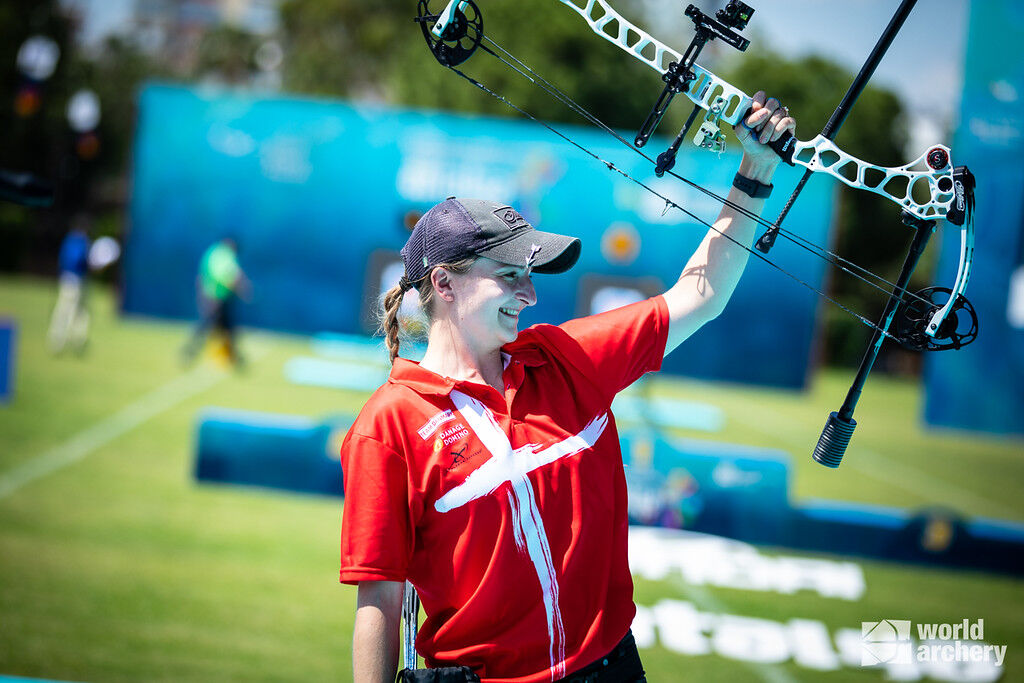
5. Who are your favourites to win in Paris?
John: I am worried that the World Cup event itself might be a bit of a side quest to the final Olympic qualification frenzy, but I’d like to see some interesting showings from the many, many nations showing up hoping to grab some of the many single spots on offer. I think the Russian teams will be emboldened by their showings in Antalya, and they will be grabbing medals left right and centre. You can never write off Ksenia Perova. I’m picking her to take gold.
Nicky: Mete Gazoz, recurve men; Lisa Barbelin, recurve women; Braden Gellenthien, compound men; Tanja Gellenthien, compound women.
Chris: MD Ruman Shana, recurve men; Michelle Kroppen, recurve women; Anders Faugstad, compound men; Ella Gibson, compound women.
Andrea: One step at a time! All eyes are on Olympic qualification – when that’s done, we’ll move on to the World Cup stage.









